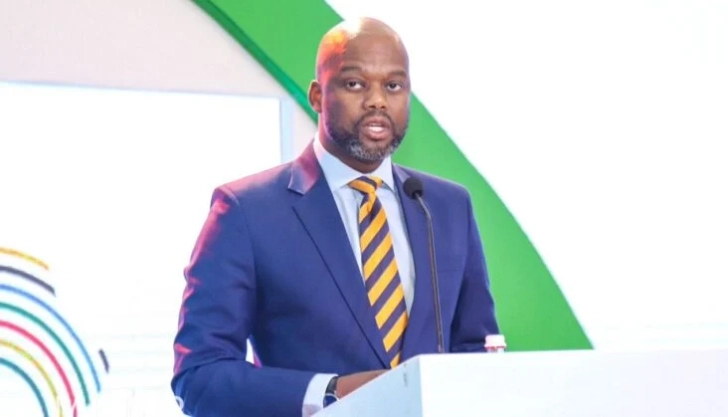Ghana urged to digitise gold trade or lose billions
Ghana urged to digitise gold trade or lose billions – AfCFTA Secretary-General

Ghana and other gold-producing countries in Africa risk losing billions of dollars each year unless they adopt digital systems to track and trade gold, the Secretary-General of the African Continental Free Trade Area (AfCFTA), Mr Wamkele Mene, has said.
Speaking at the Global Mining Summit in Accra on Monday, June 2, 2025, Mr Mene said the continent was losing an estimated $30 billion annually due to undeclared and untracked gold exports.
He described this as a “haemorrhage of value” that deprives governments of much-needed revenue and limits access to finance for small-scale miners.
“Up to 40 per cent of Africa’s gold remains undeclared,” Mr Mene told an audience of mining executives, policymakers, and traditional leaders.
“That is $30 billion each year, leaving the continent without a trace. It is time to digitise gold trade, not just to improve traceability but to protect our economies.”
He explained that the AfCFTA’s recently adopted Protocol on Digital Trade provides a legal basis for countries like Ghana to move towards digital, blockchain-based systems for trading minerals.
According to him, tokenising gold, converting physical gold into digital tradeable assets, offers a more secure and efficient way to manage the trade, reducing reliance on informal networks.
Africa produced over 1,000 tonnes of gold in 2023, accounting for more than 20 per cent of global output. Yet much of this gold is exported in raw form with little local processing, which Mr Mene said limits the economic benefit to producer countries.
“We’re not just here to talk about gold. We’re here to redefine how we trade it, and who benefits,” he said.
“If we don’t invest in digital systems to track and trade our minerals, others will continue to profit from our resources while we remain locked out of global value.”
Mr Mene pointed to Ghana’s recent steps, such as the establishment of the Ghana Gold Board and its pilot use of blockchain technology to track gold flows, as encouraging developments.
He urged policymakers to expand these efforts and bring small-scale producers into the formal system.
“Africa’s future depends on more than what we mine. It depends on how we trade it, who processes it, and whether our young people get jobs from it,” he said.
Citing global trends, Mr Mene noted that tokenised gold assets were valued at over $2 billion in 2024, a sign that investors increasingly trust digital gold trade platforms.
For countries like Ghana, he said, this is a chance to move away from exporting raw materials and instead build a modern and transparent gold economy.
The AfCFTA Secretary-General also linked Africa’s resource challenges to growing uncertainty in global trade.
He warned that rising protectionism and shifting trade policies, such as the uncertain future of the African Growth and Opportunity Act (AGOA), make it even more urgent for African countries to shape their trade systems.
“Africa must assert its economic interests on its terms,” he said. “The AfCFTA is not just a trade pact. It’s our chance to reshape how we do business, from our minerals to our markets.”
With 49 African Union countries having ratified the AfCFTA agreement, the trade area covers a market of 1.4 billion people with a combined GDP of $3.4 trillion. Mr Mene said the aim was to make trade within Africa simpler, more digital, and more connected to industrial development.
“Digital gold is not a fantasy,it’s a necessity,” he said. “And Ghana, as host of the AfCFTA Secretariat and Africa’s top gold producer, can lead the way.”
The Global Mining Summit brought together senior government officials, traditional rulers, private sector leaders and civil society to discuss how the mining industry can evolve to meet both economic and environmental goals.



